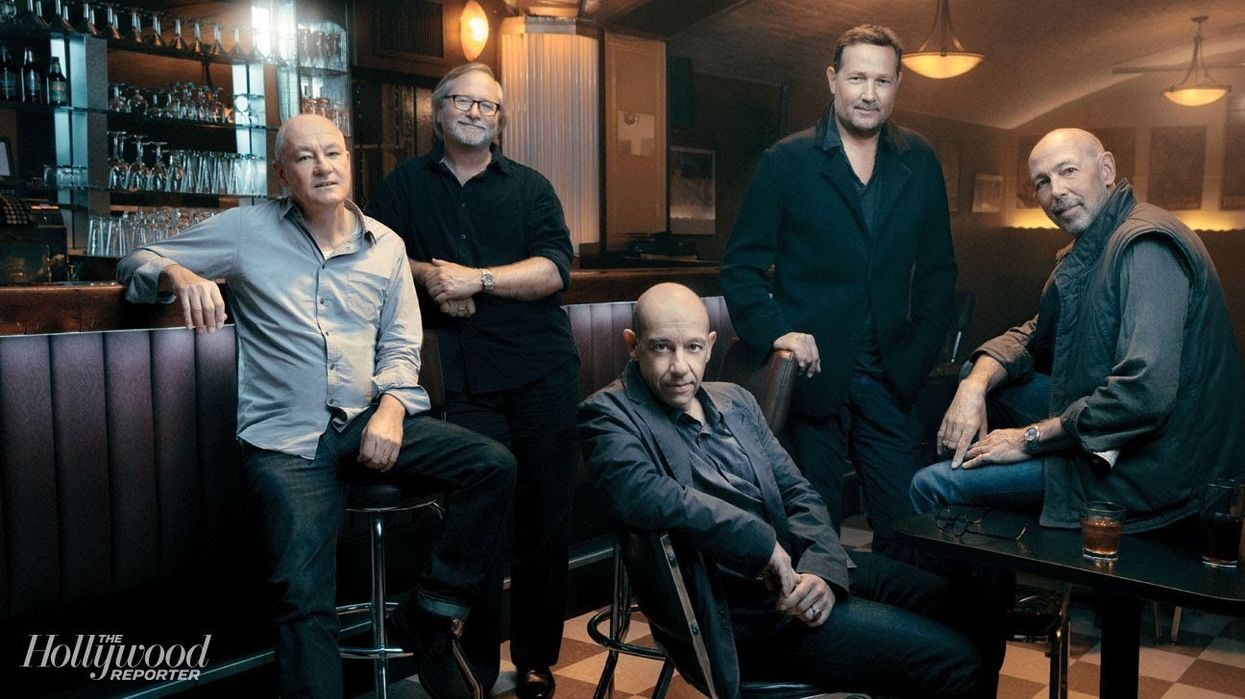Takeaways from This Year's THR Cinematographers Roundtable Discussion

The Hollywood Reporter has released another installment of their roundtable discussion series, this time with cinematographers from some of the biggest Hollywood films of the year. Barry Ackroyd, Sean Bobbitt, Bruno Delbonnel, Stuart Dryburgh, and Phedon Papamichael sit down to have a discussion about all things cinematographic, from what's it's like to be a DP, working with directors, and the transition from film to digital. Continue on to hear the discussion.
There is so much to learn in the nearly 50-minute roundtable between the cinematographers of such great films (Captain Phillips, 12 Years a Slave, Inside Llewyn Davis, The Secret Life of Walter Mitty, and Nebraska,) but I've shared a few quick takeaways that stood out to me below:
Cinematographer's are not expendable
I'm sure a lot of cinematographers reading this title are thinking, "How dare you! Of course we're not!" Most filmmakers know that DPs are artists with their own unique sensibilities and styles, but Delbonnel makes a very beautiful point about this -- how he'd never be able to do what the other cinematographers in the roundtable do. It's not in his brain to do what they do, because cinematography isn't about technique necessarily, it's about executing your signature artistic voice through what inspires you.
Working with directors
Aside from knowing how to produce images with the tools you have, knowing how to work with a director is one of the most important parts of being a cinematographer. Each DP gives some great insight, like giving support rather than demands, and making it clear to the director that you don't want to be the director.
Bobbitt, who worked on 12 Years a Slave, as well as several other Steve McQueen films, says that oftentimes, especially with young and first-time directors, they're in the process of finding themselves as directors. According to Bobbitt, because you're making their movie, being sensitive to and supportive of their journey as a filmmaker will help you find out how best to approach your work.
Film vs. Digital
The group brings up some very intriguing points about the exodus from film to digital. They explain that having lived and worked in a time when the transition occurred, being given the choice between the two was thrilling. But now, there's so much talk about film dying out, and digital completely taking its place, which makes many wonder why that has to happen that way. Bobbitt says, "I don't understand why film has to die for digital to succeed."
Dryburgh points out that Ben Stiller insisted on shooting on film for The Secret Life of Walter Mitty -- possibly because he's an actor. He suggests that many actors prefer what they look like on film versus how they look on digital, because digital has an "over-sensitivity" and produce an image that is too sharp and crisp.
What do you think about this year's Cinematographers Roundtable? What's your view on the film vs. digital debate? Let us know in the comments.
[via The Hollywood Reporter]











